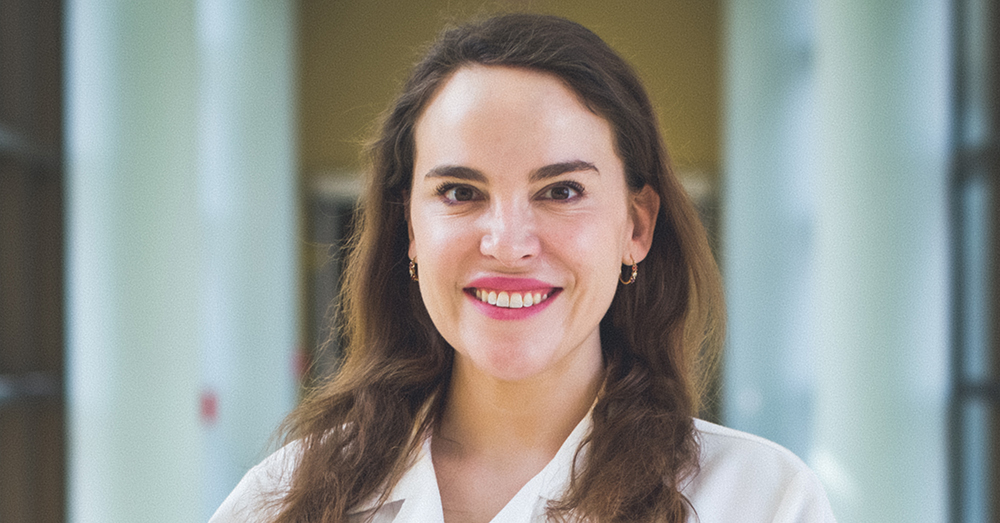Loving the Skin You’re In Can Reduce Skin Cancer Risks

The best way to treat skin cancer is to reduce the chances of it developing.
As we try to beat summer’s heat by wearing shorts rather than pants and swapping sneakers for sandals, we also expose ourselves to more sunlight and increase the risk of developing skin cancer. To help our skin navigate the summer sunshine as safely as possible, it’s important to examine it for indications of damage and to treat it accordingly.
There are hundreds of minor types of skin cancer, which an experienced dermatologist can help detect. And while screening conducted by a dermatologist is the best option, routinely self-checking our own skin also can uncover important warning signs. Either way, screenings and self-check exams are important because skin cancer is the most common type of cancer in humans. It’s also important to remember skin cancer is 100% treatable if it's caught early. If it’s detected in an advanced stage, it may require chemotherapy, and it potentially could claim the person's life.
When conducting a self-check, look for any spot that appears to be changing because skin cancer tends to evolve more quickly than do normal spots or moles on the skin. If the spot or mole has changed its color or texture, or if it is sore to the touch, itches or won’t heal, contact a medical professional.

Michelle Tarbox, M.D.
People with the lightest skin phototypes and those with the greatest sun exposure generally have the greatest risk for skin cancer. However, everyone is at risk of developing skin cancer, no matter how light or dark their skin. Skin pigmentation does have some protective effect, but even people with no skin pigmentation are susceptible.
Skin cancer can develop anywhere on the body, and the parts of the body that see the most exposure to the sun, such as the arms, hands, face and neck, are the most common areas for skin cancer. Yet, body areas that rarely see sunlight (e.g., the groin, feet and scalp) can develop some of the most dangerous types of skin cancer.
For example, melanoma is generally more threatening when it develops on the scalp because there is less skin depth on the head than there is on the arms. I have seen many patients who were referred to me by the person who styles their hair.
Some skin cancers, when detected early, can be treated with topical medicines. If it continues to develop, cutting out the spot via surgery may be required. If it reaches a more advanced stage, or if it is an aggressive form of skin cancer, it may require a procedure known as wide local excision during which the surgeon removes the cancer, a significant margin of normal skin and any lymph nodes the cancer is most likely to affect first. That procedure is usually performed under anesthesia.
As with many health-related issues, the best way to treat skin cancer is to reduce the chances of it developing. Some things I recommend to my patients include:
- Eating plenty of vegetables and fruits of various colors. The chemicals that make those plant pigments are photo protective in many ways, and their antioxidant capacity can help to neutralize some of the sun’s UV radiation effects.
- Protecting skin from direct sunlight by wearing protective clothing (e.g., hats and long sleeves), seeking shade or applying sunscreen. The most effective sunscreens, whether in powder, lotion, gel or spray should offer good water resistance and an SPF of 30 or higher.
- For children, limiting outdoor activities to times of the day when the sun is less intense such as the morning hours or late in the afternoon, reapplying sunscreen when children exit the water and helping them become comfortable wearing protective clothing.
- Contacting a dermatologist any time a new spot or mole appears on the skin.
June represents the beginning of summer for most people, and as we move forward into the season, having some sun smarts can help to protect our skin now and give us better skin health for the rest of our lives.
Michelle Tarbox, M.D., is a dermatologist for Texas Tech Physicians and an associate
professor of dermatology for the Texas Tech University Health Sciences Center (TTUHSC)
School of Medicine.
Related Stories
The John Wayne Cancer Foundation Surgical Oncology Fellowship Program at Texas Tech University Health Sciences Center Announced
TTUHSC is collaborating with the John Wayne Cancer Foundation and has established the Big Cure Endowment, which supports the university’s efforts to reduce cancer incidence and increase survivability of people in rural and underserved areas.
Making Mental Health a Priority in the New Year
Sarah Mallard Wakefield, M.D., a psychiatrist with Texas Tech Physicians, talks about strategies to combat widespread and growing anxiety.
TTUHSC Dean to be Inducted into the National Academies of Practice as Distinguished Fellow
Gerard E. Carrino, Ph.D., MPH, dean of the TTUHSC Julia Jones Matthews School of Population and Public Health, will be inducted into the National Academies of Practice (NAP) as a Distinguished Fellow of the Public Health Academy.
Recent Stories
National Academy of Inventors Names TTUHSC Faculty Senior Members
The National Academy of Inventors (NAI) has designated two current and one former TTUHSC faculty researchers as Senior Members.
The John Wayne Cancer Foundation Surgical Oncology Fellowship Program at Texas Tech University Health Sciences Center Announced
TTUHSC is collaborating with the John Wayne Cancer Foundation and has established the Big Cure Endowment, which supports the university’s efforts to reduce cancer incidence and increase survivability of people in rural and underserved areas.
TTUHSC Receives $1 Million Gift from Amarillo National Bank to Expand and Enhance Pediatric Care in the Panhandle
TTUHSC School of Medicine leaders accepted a $1 million philanthropic gift from Amarillo National Bank on Tuesday (Feb. 10), marking a transformational investment in pediatric care for the Texas Panhandle.
